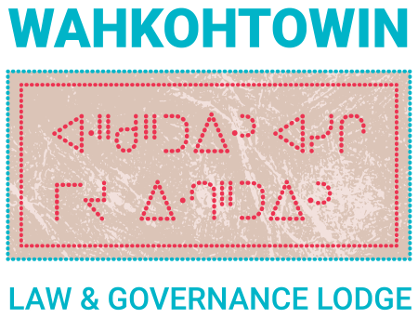Wahkohtowin Law and Governance Lodge receives second round of federal funding
Sarah Kent - 17 May 2021

The Wahkohtowin Law and Governance Lodge at the University of Alberta will receive a second round of federal funding, announced by the honourable David Lametti, Minister of Justice and Attorney General of Canada, on May 17.
The Lodge is one of 21 projects that will be supported by $9.5 million in federal funding for initiatives that respond to the Truth and Reconciliation Commission’s Call to Action 50.
In 2019, the Lodge received a $135,000 grant from the federal government to support its development of workshops and legal education strategies. To continue this work, the second round of funding provides the Lodge with a $388,964 grant over the next three years.
“We are grateful for the support of the Call to Action #50 Justice Partnership and Innovation Grant,” said Assistant Professor Hadley Friedland of the Faculty of Law at the virtual news conference. Friedland co-leads the Lodge alongside Associate Professor Shalene Jobin of the Faculty of Native Studies.
“[The grant] has enabled us to broaden the scope of our work and make our resources more accessible,” she said. “We look forward to continuing the work of supporting and upholding the laws of First Nations, Inuit and Métis people.”
Koren Lightning-Earle, lawyer with the Lodge, spoke to the Lodge’s recent initiatives, including workshops, public legal education, and developing tools for Indigenous communities to rebuild their own laws.
“Indigenous law revitalization is of the utmost importance to us at the Lodge, as it is in Canada,” said Lightning-Earle. “By revitalizing laws, we can breathe life back into our nations and societies. We can repair the harms and create stronger nations.”
Tom McDonald, president of the Aseniwuche Winewak Nation, addressed how working with the Lodge impacted his community. In 2018, the non-status community was told that people did not know who they were because they are not recognized as a band under The Indian Act.
To gain recognition as an Indigenous rights-holding group, the nation was advised to develop a citizenship code.
“We partnered with the Wahkohtowin Lodge because we wanted that law that reflects who we are, our core values and our unique way of life,” said McDonald.
The Lodge conducted over 300 self-identification surveys, compiled and analyzed the results, provided legal information resources to the community and worked with community coordinators to make over 70 home visits to share information and gather community members’ ideas for drafting a code.
“Over two years, the research process was always community-directed and holistic.”
“There was a lot of fear, like many communities, that the issue of membership would tear us apart. Instead, going about it this way with our working group and the Wahkohtowin Lodge team, we have worked toward greater unity by affirming our shared values and the ongoing value of our own way of life,” said McDonald.
The Lodge is a joint initiative of the University of Alberta's Faculty of Law and Faculty of Native Studies. One of its mandates is to produce useful, accessible and practical governance resources and public legal education.